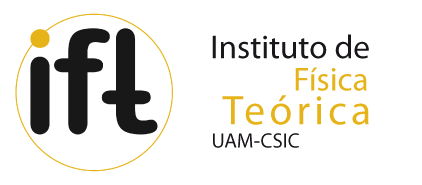Identification of Dark Matter with a Cross-Disciplinary Approach
Purpose
Scientific program
The program hinges on the realization that the characterization of the particle making up the cosmological dark matter will require an approach based on the combination of multiple probes: colliders (LHC), cosmology (Planck), direct detection experiments (LUX, CDMS, XENON, Zeplin, WARP, ArDM and others) and indirect detection experiments - such as gamma ray (Fermi from space, but also Cherenkov Telescopes from the ground), neutrino telescopes (IceCube, Antares), antimatter detectors (Pamela, AMS-02), as well as X-ray and radio facilities. All these probes are sensitive to different regions of the dark matter parameter space and constrain different particle properties, providing a global approach to dark matter science.
There is an emerging understanding within the community that a robust and accurate identification of dark matter will probably require the combination of multiple probes. Even if, as it is hoped, signatures of new physics beyond the SM are identified at the LHC after the restart of science operations at higher centre-of-mass energy in 2015, delineating the ensuing implications for the nature of dark matter and for physics beyond the Standard Model might prove to be a much harder task using LHC data alone. This is where astrophysical and cosmological observations might prove to be invaluable.
Since an integrated, holistic approach to the problem requires the merging of all the aforementioned observational probes, it is crucial to create a forum for collaborative exchange among particle physicists, astrophysicists and experts in statistical inference techniques, in order to be able to cope with the combination of several different observational channels and to interpret the constraints in the light of theoretical models.
We argue here that in the near future, and specifically in the time-frame of the proposed program, the successful identification of dark matter faces several challenges. First, there is a potential barrier between the community of scientists involved in identifying signatures of new physics at the LHC and that focusing on astrophysical signatures of dark matter. Second, we still lack a statistically accurate and reliable pathway to translate extremely count-limited datasets (including the handful of events expected in direct detection experiments, and the photon-limited results of gamma-ray observations) into information on dark matter theoretical models. Third, astrophysical uncertainties affect different searches in a different fashion, making it difficult to combine results from different search strategies in a self-consistent, cross-disciplinary analysis.
These three issues will constitute the backbone of the workshop we will offer within the program, and will be recurrent themes in the works of the participants, in addition to the general proposed focus topic.
© 2012-2013 Institute for Theoretical Physics UAM - CSIC










